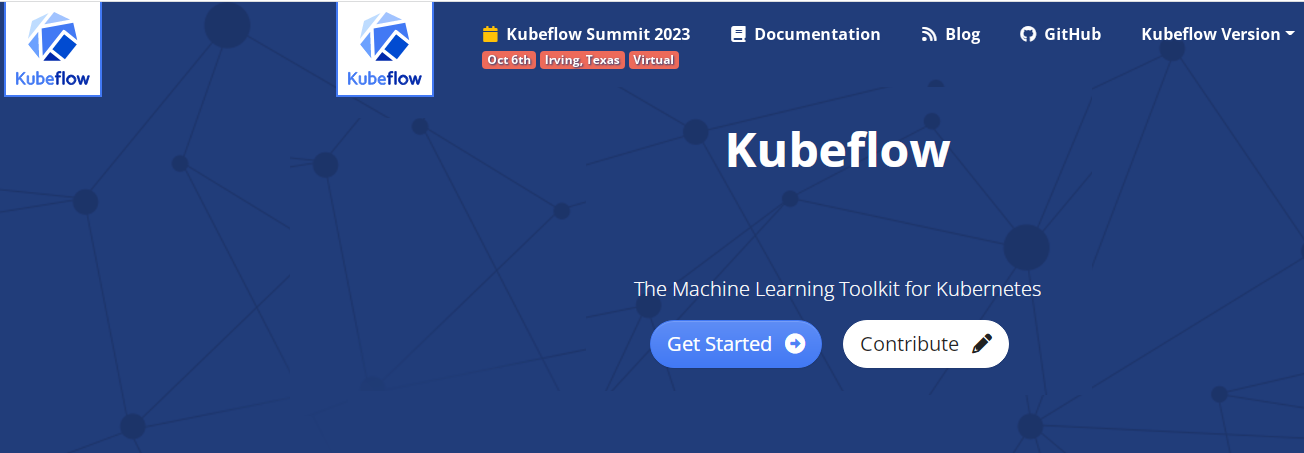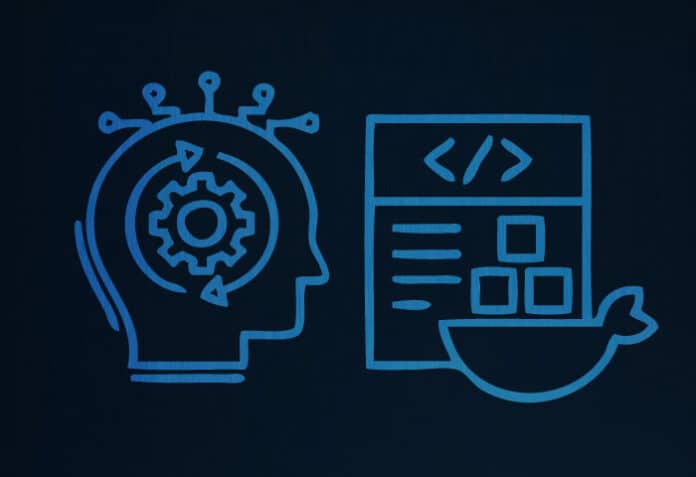Containerisation technologies are evolving continuously and make substantial use of AI today. The synergy between Docker, a leading containerisation platform, and artificial intelligence is poised to play a pivotal role in shaping the future of containerised AI applications.
In today’s swiftly changing technological environment, artificial intelligence (AI) has become a game-changer, ushering in transformative shifts across multiple industries and operational processes. AI, characterised by its capacity to replicate human intelligence and learning functions, has permeated various sectors, spanning from healthcare to finance. However, one particularly notable domain where AI is making substantial advancements is within containerisation technologies, and at the forefront of this movement is Docker.
Containerisation, a technology that encapsulates applications and their dependencies into isolated units known as containers, has gained immense popularity for its ability to enhance deployment efficiency and scalability. Docker, a leading platform in the field of containerisation, stands out as a major influencer. Its role is pivotal in simplifying the complex processes associated with application deployment and management.
As AI increasingly becomes an integral component in diverse sectors, the synergy between AI and Docker is proving crucial in addressing the challenges related to deploying and scaling AI applications. Docker provides a standardised and portable environment, making it easier to transport AI models and applications seamlessly across different stages of development, testing, and deployment. This consistency streamlines collaboration among development teams and expedites the overall deployment life cycle.
The combination of AI and Docker signifies a convergence of cutting-edge technologies. AI’s ability to mimic human intelligence meets Docker’s capability to create lightweight, portable containers, resulting in a powerful fusion that significantly enhances the deployment, scalability, and management of AI applications.
Docker and use cases with AI
In the context of AI, Docker proves invaluable by streamlining the deployment of machine learning models and AI applications. For example, in scenarios involving the deployment of machine learning models for image recognition or natural language processing, Docker facilitates the seamless transfer of applications between development, testing, and production environments. This enhances collaboration among development teams and accelerates the deployment process.
This powerful combination of Docker and AI offers numerous use cases across various domains.
Streamlined development workflow: Docker simplifies the development process by encapsulating AI models and their dependencies within containers. This ensures that developers can create consistent and reproducible environments across different stages of the development life cycle, leading to more efficient collaboration and code deployment.
Portability and compatibility: Docker containers are highly portable, allowing AI applications to run seamlessly across different environments, from development to production. This portability eliminates the ‘it works on my machine’ problem, ensuring that the AI model behaves consistently across diverse computing environments.
Scalable and resource-efficient deployments: Docker enables the easy scaling of AI applications by efficiently distributing containerised workloads across a cluster of machines. This results in optimised resource utilisation and allows for the dynamic allocation of computing resources based on demand, enhancing overall performance and responsiveness.
Microservices architecture for AI: Leveraging Docker in tandem with microservices architecture facilitates the decomposition of complex AI applications into smaller, modular services. This modular approach enhances flexibility, facilitates easier maintenance, and enables the independent scaling of different components, leading to improved overall system resilience.
Facilitating continuous integration and deployment (CI/CD): Docker containers seamlessly integrate with CI/CD pipelines, allowing for automated testing, building, and deployment of AI applications. This accelerates the development life cycle, ensures faster time-to-market, and promotes the robustness of AI solutions through rigorous testing practices.
AI model versioning and rollback: Docker’s versioning capabilities enable the easy management of different versions of AI models. This feature is particularly valuable in scenarios where it’s essential to roll back to a previous model version due to unexpected issues, ensuring a reliable and controlled deployment process.
Hybrid cloud deployments: Docker facilitates the deployment of AI applications in hybrid cloud environments, providing the flexibility to leverage both on-premise and cloud resources. This hybrid approach allows organisations to harness the benefits of cloud computing while maintaining control over sensitive data or complying with regulatory requirements.
Edge computing: Docker is well-suited for deploying lightweight containers at the edge, enabling the execution of AI models on edge devices with limited computational resources. This is especially beneficial in applications such as real-time image recognition, natural language processing, and other AI tasks where low latency is critical.
The integration of Docker with AI technologies offers a transformative approach to application development and deployment. From enhancing collaboration and portability to enabling scalable and resource-efficient deployments, the combination of Docker and AI opens up a myriad of possibilities across diverse industries and use cases.

AI based tools for Docker
Various tools and solutions have been developed to further augment the capabilities of Docker in the context of AI. These tools leverage AI to automate and optimise different aspects of the containerisation process.
Here are some notable AI-based tools for Docker.
KubeFlow
URL: https://www.kubeflow.org/
KubeFlow is an open source machine learning toolkit designed to run on Kubernetes, a container orchestration platform often used with Docker. It enables the deployment, management, and scaling of machine learning models in Docker containers. KubeFlow simplifies the process of building, training, and deploying machine learning models in a containerised environment.
In practical terms, KubeFlow serves as a comprehensive solution for developers and data scientists involved in the machine learning workflow. It streamlines the intricate processes of constructing, training, and deploying machine learning models within the containerised environment provided by Docker. By leveraging the capabilities of Kubernetes, KubeFlow ensures a smooth and efficient experience for users engaged in the end-to-end life cycle of machine learning model development.
The toolkit’s significance lies in its ability to simplify tasks that would otherwise be complex and time-consuming. Building and training machine learning models can be resource-intensive processes, but KubeFlow optimises these operations within Docker containers. This not only enhances the reproducibility and consistency of machine learning workflows but also contributes to the scalability and flexibility required in dynamic computing environments.
KubeFlow addresses the challenges associated with deploying, managing, and scaling machine learning models by providing a user-friendly and efficient toolkit tailored for containerised environments.
TensorFlow Serving
URL: tensorflow.org/tfx/guide/serving
TensorFlow Serving is a part of the TensorFlow Extended (TFX) ecosystem and is designed for serving machine learning models in production environments. It can be integrated with Docker to deploy TensorFlow models as scalable and efficient microservices. This combination ensures that AI models are readily available for inference in a containerised environment.
Operating seamlessly within production environments, TensorFlow Serving plays a crucial role in making machine learning models accessible and operational.
One noteworthy aspect of TensorFlow Serving is its compatibility with Docker. By integrating TensorFlow Serving with Docker, organisations can deploy TensorFlow models as microservices that are not only scalable but also highly efficient. This integration capitalises on Docker’s capability to create lightweight and portable containers, providing a streamlined environment for deploying TensorFlow models.
The significance of this integration lies in the creation of a containerised environment where AI models are readily available for inference. This means that businesses utilising TensorFlow models can efficiently and consistently perform predictions or inferences within a controlled and isolated container environment. This containerisation ensures a standardised and reproducible deployment process, making it easier to manage and scale AI applications across different stages of development and deployment.
In essence, the integration of TensorFlow Serving and Docker harmonises two powerful technologies to create a robust solution for deploying machine learning models in real-world, production scenarios.
Docker machine learning stack
The Docker machine learning stack is a comprehensive assemblage of technologies, prominently featuring Docker and Kubernetes alongside other specialised tools designed specifically for machine learning workflows. This stack represents a standardised and efficient solution for the packaging, distribution, and deployment of machine learning applications through the utilisation of Docker containers.
At its core, Docker serves as the foundational element of this stack, providing a platform for creating lightweight, portable containers. These containers encapsulate both the machine learning models and their dependencies, ensuring consistency and portability across various stages of the development and deployment pipeline.
Kubernetes, another integral component of the Docker machine learning stack, acts as a container orchestration system. It enables the seamless scaling, management, and deployment of Docker containers, ensuring optimal resource utilisation and facilitating the efficient execution of machine learning workloads.
The specialised tools included in this stack cater specifically to the unique requirements of machine learning workflows. They enhance the overall functionality of the stack by providing capabilities tailored to the nuances of AI model development and deployment. This integration fosters a cohesive environment where AI models can be easily integrated into existing Docker setups.
The Docker machine learning stack, with its amalgamation of Docker, Kubernetes, and specialised tools, streamlines the end-to-end process of handling machine learning applications. By adhering to standardised practices and leveraging the strengths of containerisation, this stack ensures a smooth and efficient experience in packaging, distributing, and deploying AI models. This not only simplifies the development life cycle but also facilitates the integration of AI capabilities into existing Docker environments, making it a valuable resource for organisations seeking a robust and standardised approach to machine learning deployment.
The convergence of AI and Docker technology opens up exciting avenues for research and development. As AI continues to evolve, researchers are exploring ways to enhance the efficiency, security, and scalability of containerised AI applications. Some areas of potential research include:
Dynamic scaling of AI workloads: Investigating methods to dynamically scale AI workloads within Docker containers based on demand, optimising resource utilisation while maintaining performance.
Security in containerised AI: Examining and enhancing security measures for Dockerised AI applications, addressing potential vulnerabilities and ensuring robust protection against cyber threats.
AI-driven container orchestration: Researching the integration of AI algorithms for intelligent container orchestration, automating decision-making processes to optimise resource allocation and improve overall system performance.
The integration of AI with Docker technology represents a promising frontier in the world of software development and deployment. As these technologies continue to evolve, the synergy between AI and Docker is expected to play a pivotal role in shaping the future of containerised AI applications. Researchers and developers alike are poised to explore and contribute to this exciting intersection, unlocking new possibilities and efficiencies in the deployment of intelligent applications.




